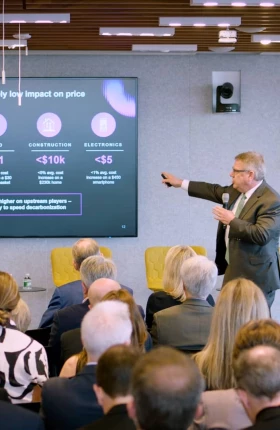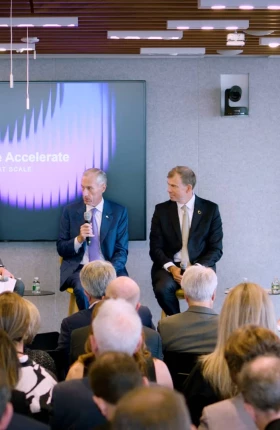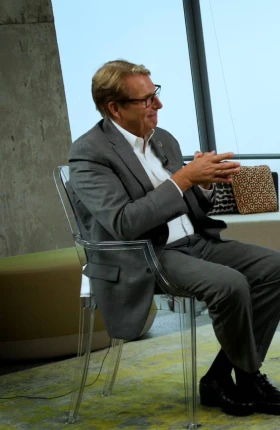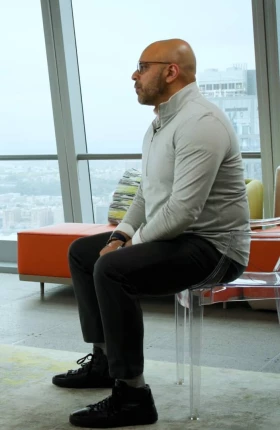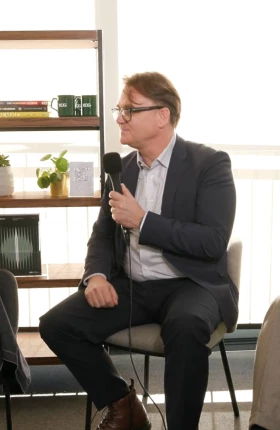Transitioning to green energy creates a healthier planet while providing countries with job growth and greater energy security. However, governments will have to make many policy tradeoffs.
Featured Insights
Sustainability Policy and Regulation

Article
February 19, 2025

Article
February 25, 2025
Although the energy transition will continue worldwide, the past year’s election results around the globe have prompted many government leaders to devote more attention to energy affordability and energy security.

Article
April 21, 2025
To thrive in uncertain times, packaging companies must remain flexible while investing in capabilities that will define future industry leadership.

Article
March 27, 2025
New fuels can decarbonize the commercial aviation industry, but stakeholders will need to move faster to achieve 2030 targets.

Six actionable opportunities for EU policymakers to accelerate the transition to regenerative agriculture at scale.

Article
January 23, 2025
To seize the economic opportunity presented by the global green transition, policymakers need to concentrate on the following principal levers and key success factors.

Article
November 19, 2024
By taking a strategic approach to ESG reporting—focusing only on materially relevant aspects—boards can meet regulatory requirements and concentrate attention on critical sustainability goals.
Highlights from UNGA & NY Climate Week
Video
September 27, 2024
A Deep Dive on the Costs of Decarbonization
Ultimately, decarbonized products won’t cost consumers a big premium. But getting there won’t be cheap or easy, explains BCG’s Rich Lesser.
Video
September 27, 2024
What Will Enable Companies to Move Faster on Climate?
Dow’s Jim Fitterling discusses the role of new markets, collaboration, and innovation in driving technological advances and speeding up climate action.
Video
September 26, 2024
Profits with Purpose
Alex Amouyel discusses how Newman's Own Foundation directs all profits to support children’s programs, donating to initiatives that nourish and uplift kids facing adversity.
Video
November 4, 2024
Partnering with the Private Sector to Meet Humanitarian Needs
The private sector’s scale and reach make it a valued partner in disaster response and other humanitarian efforts, says BCG’s David Young.
The Sustainable Advantage: Insights on Creating Competitive Advantage Through Sustainability
Climate Innovation and Tech
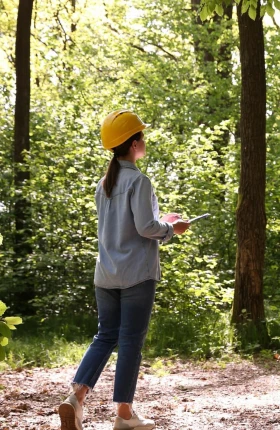
Article
May 6, 2025
Forests can anchor a high-integrity voluntary carbon market—if developers, landowners, and market leaders shift from transactional credit models to long-term asset stewardship.

Article
June 17, 2025
Companies that combine smart investment with targeted innovation in their value chains can achieve competitive advantage.
Video
April 23, 2025
The Key to Sustainable Growth is Deep Innovation
Lauren Taylor offers a blueprint for creating planet-friendly products that do not ask customers to compromise.

Leaders from both the public and private sectors must take bold action to protect communities, organizations, and natural systems from the impacts of climate change. A new generation of data-driven and digital technologies will play a central role in this effort.
Video
November 4, 2024
A Turning Point for Green Growth
Companies are focusing on long-term solutions that unlock growth and new profit pools in sustainability, say BCG’s Hubertus Meinecke and Vinay Shandal.
Finance and Investment

Article
June 27, 2025
The blended finance market is larger than it appears. With the right moves, banks can turn early leadership into long-term advantage.

Report
May 6, 2025
A comprehensive map of opportunities in Climate A&R solutions shows that the market is primed for investors to act now.

Article
January 28, 2025
To advance sustainability at scale, leaders need to double down on those initiatives that accelerate the growth and duration of cash flows.

Article
January 16, 2025
Addressing climate change is creating opportunities that may be worth $11 trillion by 2040. Countries that act early can position themselves for growth.
Video
March 6, 2025
Green Economy: The Opportunity and the Trade-Offs

Report
October 23, 2024
Private equity-owned companies are taking steps to reduce their carbon emissions in both the long and short term. The key is establishing a decarbonization strategy and clear goals.
Nature and Environment

Article
May 1, 2025
As they face unprecedented volatility in global agrifood supply chains, decision makers can act today to build long-term resilience and competitive advantage.
Video
May 15, 2025
In this short film, two experts share a meal to discuss the roles that corporations and individuals have to play in creating a more sustainable food system.

Article
November 7, 2024
Investment in sustainable agriculture will be key in order for farmers to keep up with rising global food demand.

Article
March 28, 2025
Greater biodiversity is the key to healthier soil. And healthier soil is the key to a range of environmental and economic benefits. Here’s how to achieve them.

Article
July 11, 2024
Governments and alternative protein players should follow three lessons that jump-started the growth of the electric vehicle industry.

Article
March 27, 2024
Next-generation soil carbon sequestration supercharges biological and chemical processes that naturally occur in the soil, helping corporate efforts to get to net zero and mitigate climate change.
Industry Spotlight

Article
May 13, 2025
Consumers are showing a growing interest in foods that are better for their health, and this realization is starting to be reflected in sales.

Article
March 26, 2025
Recent nuclear projects in Europe and the US have taken far longer to complete than new builds elsewhere. Here’s how to speed up the process.
Video
January 29, 2025
What’s Needed to Drive the Net Zero Transition in the Chemical Industry?
Innovation is key to progress, according to Clariant’s Richard Haldimann and Charlie Tan of Global Impact Coalition. But so, too, is teaming up with companies in the value chain and industry.

Article
January 20, 2025
Data centers are booming, but power, supply chain, and sustainability challenges threaten growth. Here’s how companies can surmount the obstacles and meet the growing thirst for computing power.

Report
February 13, 2025
How can fashion brands drive adoption to unlock the benefits of next-gen materials? A report by Fashion for Good and BCG provides a blueprint.

Article
December 10, 2024
Maritime transportation could become a key part of the carbon capture value chain, especially in Asia-Pacific.
For Business Leaders

Article
January 16, 2025
Trade and AI, growth and climate imperatives, and workplace unity will define the CEO agenda in the year ahead. Here’s a closer look at each dynamic.

Tune in to an episode of Harvard Business School’s Climate Rising Podcast as Rich Lesser shares impactful solutions for a sustainable future in business.

Article
July 23, 2024
Action to enhance adaptation and resilience is urgently needed. A new approach for tracking the impact of a country’s A&R investments could unlock investment.
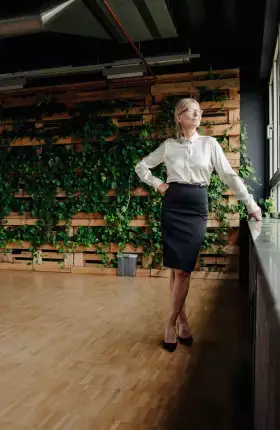
Article
December 3, 2024
CSOs have a critical window in their first few months on the job to make change and build momentum for success.
Explore more
Capability
Social Impact
Industry




